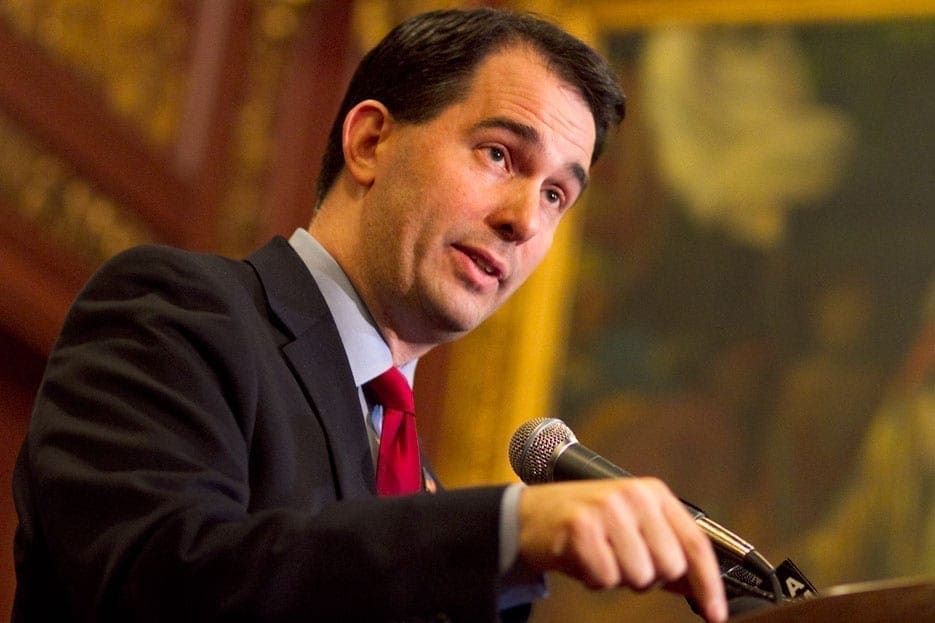The Washington Examiner recently covered former Governor Scott Walker’s economic reforms in Wisconsin. Arguably, one of the most effective governors in the last decade, Walker dramatically changed the state’s economic and political landscape with many of his political reforms.

Before Walker took office in 2011, Wisconsin had an unemployment rate of 8.1 percent in December 2010. Wisconsin’s previously bloated government was a major hindrance to business creation which in turn provided gainful employment to working-class families.
Wisconsin was innovative in implementing what would set the basis for the federal REINS Act, which allows legislatures to review and repeal potentially burdensome regulations. Under this reform, red tape was slashed, thus giving business more breathing room to expand employment opportunities. With Walker’s signature in 2017, Wisconsin became the first state to implement the REINS Act.
In 2019, Kentucky Senator Rand Paul introduced a federal version of this successful reform. Regulations not only stifle entrepreneurial activity, but they are also passed on to consumers through more expensive goods and/or lower quality services.
Regulations have many second-order effects that end up negatively affecting people’s overall well-being. To his credit, Walker recognized this and proceeded accordingly by lifting many of the regulatory shackles in Wisconsin.
Walker was not alone. The Wisconsin legislature teamed up with him to reduce government largesse through the lean government initiative. RealClearPolitics reported that it “eliminated 400 unneeded bureaucratic steps in state regulatory agencies, saved nearly 80,000 staff hours, reduced regulatory backlogs by an average of 54% and saved $1.6 million.”
By the end of Walker’s time office in December 2018, unemployment fell to 3%, according to data from the Bureau of Labor and Statistics. This is no coincidence given the bold de-regulatory reforms that Wisconsin implemented. It’s not just marginal tax cuts that get the economy going, it’s the rollback of bloated bureaucracy.
Wisconsin offers hope for other states. Once considered a blue, union stronghold, Wisconsin’s bold reforms in the area of public-sector unionization and its passage of a right-work law have allowed it to flourish. On a side note, Wisconsin also made numerous public security reforms by finally legalizing concealed carry in 2011. By allowing for concealed carry, the state adapted to the reality of concealed carry that has swept across the nation during the last few decades.
This goes to show that firm political leadership is needed for change to happen. Scott Walker may have his flaws, but his time as Wisconsin Governor demonstrated that political change can become a reality if the right leadership is in place. It’s one thing to talk about small government, but it’s a whole another ballgame actually implementing it.
For that, Walker and his colleagues should be commended. More states should follow and expand upon Walker’s example.




















